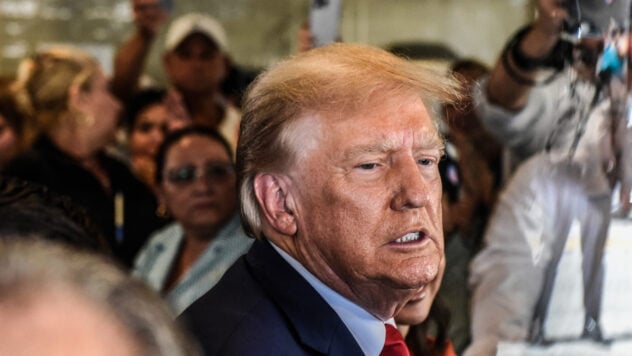Former US President Donald Trump does not have immunity from prosecution for crimes he allegedly committed during his presidency to overturn the results of the 2020 election.
The federal appeals court in the District of Columbia came to this conclusion on Tuesday.
As CNN notes, this decision “deals a serious blow” to defend Trump in the federal presidential election subversion case brought against him by special counsel Jack Smith.
Now watching
The former president previously argued that the conduct Smith accused him of was part of his official duties as president and therefore protected him from criminal liability.
— For the purposes of this criminal case, former President Trump became Citizen Trump, with all the defenses available to any other criminal defendant. But any executive immunity that might have protected him while he served as President no longer protects him from this prosecution, — goes in the court decision.
The ruling of the panel of three judges was unanimous.
Trump will appeal
In a statement Tuesday, Trump spokesman Stephen Chung said an appeal should be expected.
— President Trump respectfully disagrees with the D.C. Circuit Court's decision and will appeal it to protect the Presidency and the Constitution, — Chung said.
The court gave Trump until February 12 to ask the Supreme Court for an emergency stay that would stop the clock while his lawyers prepared a more substantial appeal on the merits.
Unprecedented encroachments
If Trump succeeds in gaining time, the criminal trial will resume only after the US Supreme Court decides what to do with his request for a stay.
If proven, the court writes, Trump's attempts to usurp the 2020 presidential election would be “an unprecedented attack on the structure of our government”.
— It would be a striking paradox if the President, who is charged by the Constitution with the duty of “to ensure that the laws are strictly executed”, were the only official who could violate those laws with impunity — they wrote.
The judges flatly rejected Trump's claim that criminal charges against him would have a “chilling effect” on future presidents.
— Moreover, past presidents have understood that they could be subject to impeachment and criminal prosecution, at least under certain circumstances, so the possibility of chilling executive actions already exists, — says in conclusion.
Trump's lawyers argued that if future leaders believed they could face charges for their “official actions” as president, they will be more hesitant in their actions.
In response to this, the panel of judges wrote:
— The risks of chilling the president's actions or allowing frivolous, vexatious prosecutions are unlikely, unsupported by history, and “too distant and shadowy to determine the course of justice”. We therefore conclude that functional policy considerations embedded in the structure of our government do not exempt former Presidents from federal criminal prosecution, — stated the judges.
What Trump is accused of
Trump faces four counts of election disruption brought by Smith, including conspiracy to defraud the United States and obstruction of an official proceeding. The former president pleaded not guilty.
Trump claimed he was working to “ensure election integrity” within the scope of his official powers as president, and is therefore immune from prosecution for attempting to overturn the election results. His lawyers also argued that because Trump was acquitted by the Senate during impeachment proceedings, he is immune from double jeopardy and cannot be indicted by the US Department of Justice for the same actions.
In December, the district judge overseeing Trump's criminal case in Washington rejected Trump's immunity arguments, writing that being president “does not qualify him for life in prison”. Trump quickly appealed the decision to the D.C. District Court, which agreed to expedite the matter.

